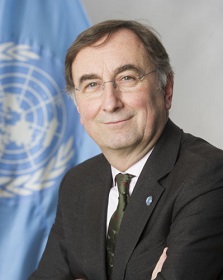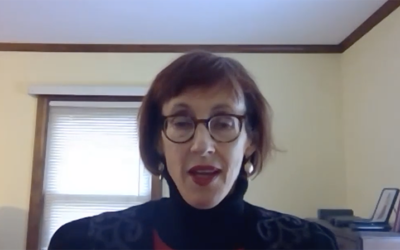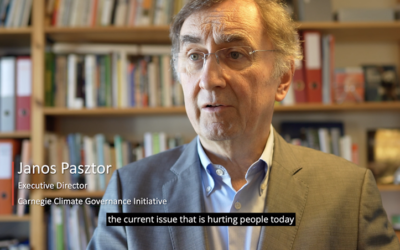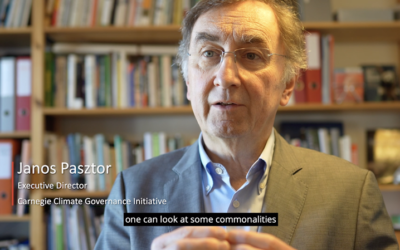C2G in the age of COVID-19

These are unsettled times, and C2G’s experience has been no exception.
In January and early February, we saw some signs that the world was potentially entering a new political phase on climate.
Bushfires and other disasters had raised public awareness that climate change is already here. There was mounting pressure on governments to make up for the shortfalls of COP-25, and a spate of private sector announcements suggested business leaders were finally starting to treat the issue with the urgency it deserves – including the need to move beyond net zero CO2 emissions to net negative.
In early 2020, C2G saw a significant uptick in the number of countries seeking our advice on emerging climate approaches, including – notably – solar radiation modification (SRM).
- Belgium made public her intention to organize a major information event on SRM – and in particular the geopolitical and security implications – at the UN in New York in March. C2G was invited to co-host and/or support in whatever way we could.
- About two dozen countries sent representatives to a meeting at the Belgian mission to the UN in New York, where I had the opportunity to present the key governance issues.
- Subsequently, we had bilateral meetings with an additional two dozen missions to the UN in New York, mostly at ambassadorial level, including representatives of the Group of 77 and China (G77), and the Alliance of Small Island States (AOSIS). Unlike in some previous meetings, most representatives were well briefed from their capitals, or by their own technical staff, and had prepared lists of points and questions for us to respond to.
- Subsequent to these events in New York, five other countries came forward and agreed to co-host the event with Belgium.
That is not to say these interlocutors were considering the possibility of SRM deployment – or even a major research programme. But many now recognised that – as the climate crisis deepens – there is a growing potential for SRM to emerge as an option, and that there is an increasing possibility that other countries may also consider it. Difficult decisions lie ahead, and in order to make them, a growing number of countries feel it would be prudent to learn more.
Further building on this sense of change, the G20 Secretariat (with Saudi Arabia providing the current presidency) invited C2G to the Climate Stewardship Working Group in Riyadh in March, where I spoke about the governance of carbon dioxide removal (CDR), and in particular of nature-based approaches.
And then COVID-19 became a global pandemic.
Readers scarcely need an account of what has happened since. Suffice to say, climate policy gatherings have been cancelled across the globe, and our issue has – for the time being – once more dropped down the agenda. The proposed Belgian event has also been postponed.
This has meant we, as everyone, have had to reconsider how we approach the coming months.
A new way of working?
On a practical basis, C2G is in a better position than many, as our team already mostly works remotely, and has tackled many of the challenges of a virtual office that others are now getting to grips with.
Those of us who had been travelling considerably face an extended period of being grounded, with both positives and negatives.
On the one hand, we lose the one-on-one contact that is particularly important in a topic which hinges on mutual trust.
On the other, we gain more time to reflect strategically on our work and to develop our digital offerings – such as through teleconferences, expert briefings, or online resources, which could prove particularly useful during the isolation phase of this pandemic.
In terms of our subject matter, understandably, climate and other important policy matters need to step back as leaders tackle the COVID-19 crisis at hand. But I do believe that, short of a major turn for the worse, climate change will remain the world’s primary medium to long-term international challenge.
Perhaps the pandemic emergency response could prompt some lasting behaviour change, which might help in our response to climate change – but I would not bank on it, and believe it remains as important as ever to engage in innovative thinking about new approaches and their governance.
This may prove more challenging, however, in an age of significant financial difficulties, and may even lead some people to seek quicker, faster responses, such as those potentially offered by SRM – and that brings with it a particular set of challenges.
In short, I am uncertain how this crisis will affect our work in the longer-term, but in no particular order, I share some thoughts that have occurred to us.
The value of anticipation
Part of C2G’s challenge is to convince busy policymakers to respond to the governance needs of events that lie in the future. (Some call this anticipatory governance). This can be a difficult task at the best of times, even more so when living through an active crisis.
At the same time, COVID-19 has certainly underlined the value of anticipating future problems and preparing frameworks to tackle them. It is too soon to say which countries will fare better or worse in this crisis, and how that relates to their specific level (and quality) of preparedness, but the idea that unlikely but high global-impact risks are worth preparing for may be an easier case to argue, for a while at least.
Measuring one risk against another is difficult – especially when unknown
As different countries have grappled with when to close schools, or restrict travel, the challenge of measuring two risks against each other has become apparent – especially when the potential impacts are both known and unknown (including unintended consequences).
Initial differences of approach within Europe, for example, showed how even closely aligned countries can come to defensibly different conclusions. Agreeing globally how to take decisions on potential actions such as SRM deployment could also be quite challenging.
Public information is crucial
Plans which may look good in models and scenarios can look drastically different to concerned publics when a crisis actually hits. COVID-19 has demonstrated a variety of public responses to emergency measures – from acceptance and compliance to anger and criticism – and how quickly issues of trust and shared values come to the fore. Effective and inclusive governance of climate-altering technologies must address the challenges of public dialogue and information sharing.
We are as strong as our weakest link, and need global cooperation …
COVID-19 would seem to be a powerful reminder that the world is only as safe as its most vulnerable points, and of the importance of cooperation and information sharing when faced with a global crisis. It is possible this pandemic will refocus minds on the importance of international systems, at a time when confidence and trust in those systems had been declining. This could have relevance to our shared response to climate change. We rise or fall together.
… but others may reach the opposite conclusion.
Unfortunately, not everyone will agree. Some countries or communities may conclude that the best way to confront a global challenge is to pull up the drawbridge and protect themselves to the detriment of others. We do not know where COVID-19 will take us, but either way, it could have some important ramifications for the world’s ability to work together.
We can change our behaviour faster than we imagined
However this crisis evolves, countries have already instigated changes that would have seemed very unlikely only a few months ago. Furthermore, they did so relatively quickly, and for the most part (so far) peacefully. When faced with a genuine sense of crisis, it turns out societies can change – and we are learning that not all change is negative. Local communities all over are finding new ways to interact and support each other, creating – for now – a sense of social solidarity. Will such attitudes persist?
Related videos:
Global Coordination in an Age of Pandemics and Emerging Climate Technologies
Much like efforts to mitigate the effects of the COVID-19 pandemic, combatting climate change requires cooperation on a global scale. And yet the history of international climate negotiations shows just how difficult that cooperation can be. At the same time, new...
What effect could COVID-19 have on the climate policy debate? – Janos Pasztor
C2G Executive Director Janos Pasztor reflects on how the COVID-19 crisis might affect international cooperation on climate. For more on the implications of COVID-19 on C2G's work and climate policy, click here.
How might the COVID-19 crisis change the way we think about climate risk? – Janos Pasztor
C2G Executive Director Janos Pasztor reflects on what the COVID-19 crisis and climate crisis have in common, and what we might learn from this experience about anticipatory governance. For more on the implications of COVID-19 on C2G's work and climate policy, click...


